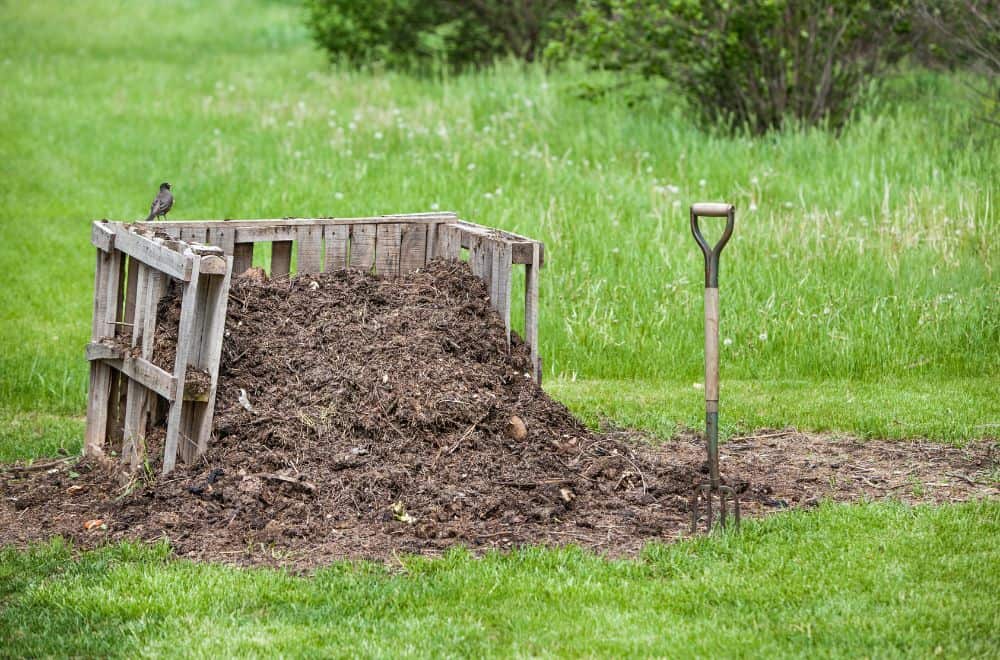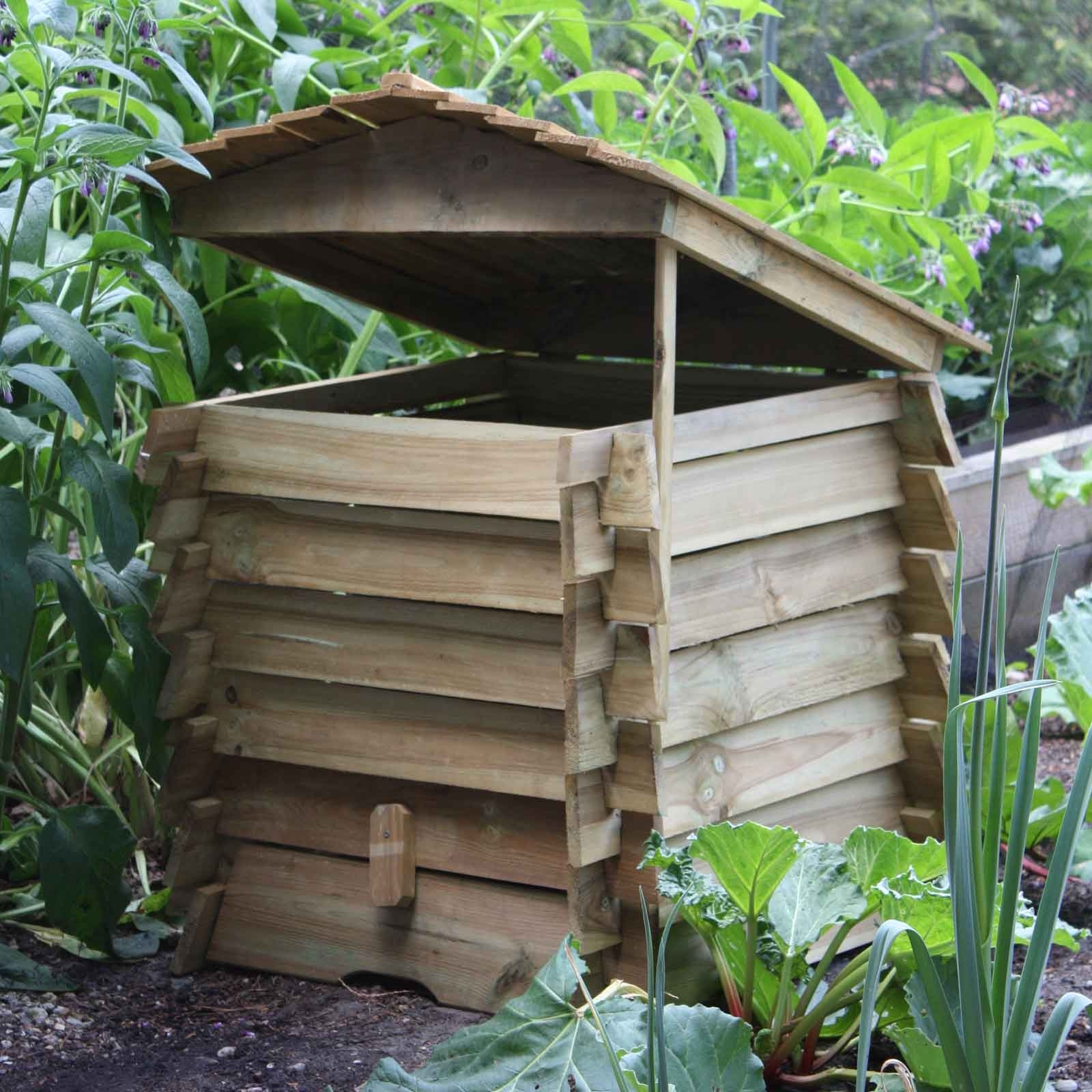Composting is a sustainable and eco-friendly practice that transforms organic waste into nutrient-rich compost, providing numerous environmental benefits. At the heart of this process lies a key tool: the composter.
Composters come in various shapes, sizes, and designs, but their primary function remains consistent – to facilitate the decomposition of organic matter into a valuable soil amendment. In this exploration, we delve into the world of composters, understanding their types, functions, and the significant impact they have on waste reduction, soil health, and overall sustainability.
Understanding Composting
Compost is a great organic mulch, soil conditioner, and fertilizer since it contains all the nutrients your plants require. Simply place some kitchen and garden waste in a compost bin, and it will decompose for a year or two to expose fresh, homemade compost.
Composting is a natural biological process that breaks down organic materials, such as kitchen scraps, yard waste, and other biodegradable items, into a nutrient-rich soil conditioner. This process mimics the decomposition that occurs in nature but in a controlled environment. Microorganisms, such as bacteria and fungi, play a crucial role in breaking down the organic matter, turning it into a humus-like substance known as compost.
How is Compost made?
The composting process involves three main components: green materials (nitrogen-rich), brown materials (carbon-rich), and water. Green materials include items like fruit and vegetable scraps, coffee grounds, and fresh yard waste. Brown materials consist of dry leaves, straw, cardboard, and other carbon-rich materials. Balancing these components is essential for an efficient composting process.
What does a Composter do?
A composter acts as the vessel for this transformative process. It provides the right conditions for microorganisms to thrive, breaking down organic matter efficiently. Composters come in various types, each catering to different needs and preferences.
Types of Composters
Composting is a great technique to enrich your garden soil with nutrients while preventing food leftovers and yard waste from ending up in the trash. And it’s never been simpler to quickly produce mountains of compost with the variety of composters on the market today!
Composters come in various designs, each catering to specific needs and preferences. Understanding the different types is essential for choosing the right composter for your situation.
Bin Composters
Bin composters are popular for their containment and ease of use. They come in two main types:
Enclosed Bins
These are container-like structures with lids, creating a controlled environment. Suitable for smaller spaces and urban settings, enclosed bins help regulate moisture and temperature, fostering efficient composting.
Tumbling Bins
Tumbling bins have a rotating mechanism, simplifying the process of turning the compost. Turning ensures uniform decomposition and aeration, promoting faster composting. Tumbling bins are especially useful for those who may find manual turning challenging.
Pile Composters
Pile composting is a more straightforward approach, involving the creation of a compost heap. This category includes:
Open-Air Piles
The most basic form of composting, open-air piles are created in an open space. While less contained, they allow for larger compost volumes, making them suitable for more extensive properties.
Windrow Composting
Windrows are long, narrow piles that are turned regularly to ensure even decomposition. This method is common in larger-scale composting operations.

Vermicomposters
Vermicomposting involves the use of worms to break down organic matter. Worm bins are compact and suitable for indoor or small-space composting. Red wigglers are typically the worm of choice for their efficient composting capabilities.
Worm Bins
These bins are designed to accommodate the needs of composting worms. They provide an enclosed space for worms to thrive while breaking down organic materials.
In-Ground Composters
In-ground composting involves burying organic waste directly in the soil. This method is low-maintenance and can be suitable for specific soil types.
Trench Composting
Trench composting entails digging a trench and burying organic waste. While simple, it may not be suitable for all soil types, but it is an effective way to integrate composting directly into gardening practices.
Components and Features of Composters
Understanding the components and features of composters is crucial for optimizing the composting process and achieving successful results.
Aeration Systems
Proper aeration is essential for aerobic decomposition. Many composters incorporate features to facilitate airflow.
Ventilation Holes
Composters often have strategically placed ventilation holes or slots. These allow for the circulation of air, promoting the activity of aerobic microorganisms and accelerating decomposition.
Material and Design
The material and design of a composter impact its durability, aesthetics, and functionality.
Plastic
Commonly used for bin composters, plastic is durable and affordable. It is resistant to moisture and provides a controlled environment.
Wood
Wooden compost bins are aesthetically pleasing and blend well with garden surroundings. While they may require more maintenance, they add a natural touch to composting.
Metal
Metal composters are durable and resistant to pests. However, they may be prone to rust over time, and their aesthetics may differ from wooden or plastic options.
Size and Capacity
Choosing the right size and capacity depends on the amount of organic waste generated.
Small Bins
Suitable for households with limited space and minimal organic waste. These bins are ideal for those new to composting or with smaller yards.
Large Bins or Tumblers
Ideal for larger households or those with more significant amounts of organic waste. Tumblers, with their rotating mechanism, facilitate the composting process for larger volumes.
Temperature Regulation
Some composters come with features to regulate internal temperatures.
Insulated Bins
Insulation helps regulate the temperature within the composter. This is crucial for creating optimal conditions for the microbial activity responsible for decomposition.
Environmental Impact
Composting plays a crucial role in waste reduction and environmental sustainability. By diverting organic waste from landfills, composting helps mitigate the production of harmful greenhouse gases, such as methane. Methane is a potent contributor to climate change, and its reduction through composting aligns with global efforts to combat environmental degradation.
Additionally, composting enriches the soil, improving its structure, water retention, and nutrient content. This, in turn, enhances plant growth and reduces the need for chemical fertilizers. As compost returns valuable organic matter to the soil, it promotes biodiversity and supports a healthier ecosystem.
Benefits of Composting
Waste Reduction
Composting significantly reduces the volume of organic waste sent to landfills. According to the U.S. Environmental Protection Agency (EPA), organic materials make up about 30% of what Americans throw away, and composting is an effective way to divert a substantial portion of this waste from ending up in landfills.
Soil Enrichment
Compost is a nutrient-rich soil amendment that improves soil structure and fertility. It enhances the soil’s ability to retain moisture and nutrients, promotes aeration, and supports the growth of beneficial microorganisms. Healthy soil is the foundation for productive and sustainable agriculture.
Carbon Sequestration
Composting contributes to carbon sequestration by converting organic matter into stable organic carbon in the form of humus. This helps mitigate the release of carbon dioxide (CO2) into the atmosphere, playing a role in climate change mitigation.
Reduced Need for Chemical Fertilizers
The use of compost reduces reliance on synthetic fertilizers. Compost provides a balanced mix of essential nutrients, promoting plant growth without the negative environmental impacts associated with chemical fertilizers, such as soil degradation and water pollution.
Sustainable Gardening Practices
Compost is a valuable resource for gardeners and farmers practicing sustainable agriculture. It serves as a natural and cost-effective alternative to conventional fertilizers and soil amendments, fostering environmentally friendly gardening practices.
Economic Benefits
Composting can lead to economic benefits at both individual and community levels. For individuals, it reduces the need to purchase commercial fertilizers, while at the community level, composting programs can generate employment and contribute to a more circular economy.
Tips for Successful Composting
- Balance Green and Brown Materials – Achieving the right balance of nitrogen-rich green materials and carbon-rich brown materials is essential for effective composting. Aim for a mix of about 1 part green to 3 parts brown.
- Proper Aeration – Turning the compost regularly helps introduce oxygen, promoting aerobic decomposition. Many composters come with features that facilitate easy turning.
- Maintain Moisture Levels – Compost should be as moist as a wrung-out sponge. If it’s too dry, add water; if it’s too wet, incorporate more dry brown materials.
- Choose the Right Location – Place composters in a well-drained area with good air circulation. Avoid direct sunlight, as excessive heat can harm the microorganisms involved in the composting process.
- Be Mindful of What You Compost – While many organic materials can be composted, avoid adding diseased plants, pet waste, or items treated with pesticides. These can introduce harmful pathogens or chemicals into the compost.
Composter – FAQs
What is the best type of composter for small urban spaces?
Enclosed bin composters, especially those with a tumbling mechanism, are ideal for small urban spaces. They are compact, provide control over moisture and temperature, and facilitate efficient composting in limited areas.
How does composting help reduce greenhouse gas emissions?
Composting diverts organic waste from landfills, where it would otherwise decompose anaerobically, producing methane, a potent greenhouse gas. By composting, organic matter decomposes aerobically, significantly reducing methane emissions and contributing to climate change mitigation.
Can I compost kitchen scraps in an apartment setting?
Yes, vermicomposting is a suitable option for composting kitchen scraps in an apartment. Worm bins are compact, odor-free, and can be kept indoors. Red wigglers efficiently break down food scraps, providing nutrient-rich compost for indoor plants or balcony gardens.
How does compost improve soil fertility?
Compost enhances soil fertility by providing a balanced mix of nutrients, improving soil structure, and promoting beneficial microbial activity. It increases the soil’s ability to retain moisture, enhances aeration, and creates an environment conducive to healthy plant growth.
Are there any economic benefits to composting?
Yes, composting can offer economic benefits. At an individual level, it reduces the need to purchase commercial fertilizers. On a larger scale, community composting programs can generate employment opportunities and contribute to the development of a circular economy by turning waste into a valuable resource.
Does a composter need air?
One of the most crucial components of a high-quality compost is ventilation. Air is necessary for the bacteria that convert yard waste such as leaves, grass clippings, and other materials into compost.
Conclusion
Composters stand as champions in the journey towards sustainable waste management and environmental conservation. As more individuals and communities recognize the importance of composting, these simple yet effective devices play a pivotal role in transforming organic waste into a valuable resource.
From reducing the burden on landfills to enriching the soil and promoting sustainable agriculture, composter contributes to a greener, healthier planet. Embracing composting as a daily practice not only benefits the environment but also empowers individuals to actively participate in the global movement towards a more sustainable future.

